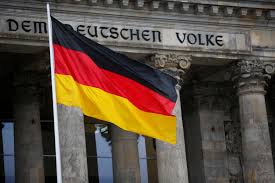The upcoming German Bundestag elections, scheduled for February 23, 2025, will mark a significant turning point in the country’s political landscape. For the first time since the post-WWII era, Germany’s two dominant political parties — the Social Democratic Party (SPD) and the Christian Democratic Union (CDU) are expected to receive less than half of the national vote. This represents a notable departure from Germany’s traditional two-party system, with smaller parties steadily gaining influence.
Traditional Party Power Over
The SPD, currently led by Chancellor Olaf Scholz, has seen a substantial decline in voter support, with recent polling placing it at just 16%. This drop is partly attributed to the party’s coalition with the Free Democratic Party (FDP) and the Greens, which has faced difficulties since its inception. The so-called ‘traffic-light coalition’ collapsed in late 2024 after the FDP left the government, and the Bundestag voted to dissolve it.
Similarly, the CDU, which has historically been a dominant force in German politics, has seen its support level drop to 30%. While it remains the largest party, it no longer enjoys the commanding lead it once had, signaling a shift in Germany’s political environment.
At the same time, smaller parties on both ends of the political spectrum have been gaining ground, particularly the far-right Alternative for Germany (AfD) and the newly-formed far-left BSW, led by former Left Party member Sahra Wagenknecht.
Rising Influence of the AfD and BSW
Based on reports in the public domain, the AfD, a far-right party with a history of Euroscepticism, has surged in popularity, attracting significant support from voters disillusioned with the mainstream parties. Today, the AfD’s influence is felt in both the Eastern and Western parts of Germany, and the party’s rhetoric has shifted to hardline stances on immigration, nationalism, and European Union relations. Their proposals include stringent anti-immigration policies, deportations of foreign nationals, and a call to curtail Germany’s engagement with the EU.
On the other side of the political spectrum, the BSW’s rise reflects growing discontent with the traditional left-wing parties. Founded in 2024 by Wagenknecht, the BSW combines left-wing economic policies with a staunch opposition to immigration. This blend of populist leftism and anti-immigrant sentiment has garnered significant attention, particularly in the Eastern regions of Germany, where the party’s message resonates with many.
Immigration and Economic Challenges
Immigration is one of the most divisive issues in this election cycle. The country has faced increased tensions following a series of high-profile attacks allegedly involving foreign nationals, which have fueled anti-immigrant sentiment. The AfD has capitalized on these fears, calling for large-scale deportations and a strict crackdown on immigration.
CDU leader Friedrich Merz has voiced similar concerns, advocating for stricter border controls and reducing immigration through tighter laws. In contrast, the SPD and the Greens have rejected these proposals, arguing that they cater to far-right ideologies and undermine the nation’s values of tolerance and diversity.
Alongside immigration, economic issues remain central to the upcoming election. Germany’s economy has struggled with inflation, rising energy costs, and sluggish industrial growth. Unemployment is relatively low but job creation has stalled, and economic forecasts for 2025 suggest a continued downturn.
Reports suggest the government’s response to these challenges, particularly its fiscal policies, has divided the political parties. Scholz’s administration has advocated for increased spending to stimulate the economy, while the CDU prefers a more cautious approach, opposing further increases in national debt.
What will be the Role of New Parties?
Given the current political landscape, a coalition government will likely be required to form a new administration. With no single party expected to win an outright majority, the process of coalition-building will be crucial. However, the growing influence of parties like the AfD and BSW could complicate negotiations, as many mainstream parties have refused to cooperate with the far-right AfD. This may force the major parties to adopt new strategies to form a viable government, likely leading to increased political instability.
The AfD, with its rising popularity, has the potential to act as a ‘kingmaker,’ especially in eastern Germany, where it has already gained a significant foothold. The BSW, despite being a newer player, is also gaining traction, particularly in East Germany, where many voters feel left behind by the political establishment.
Germany’s Political Future
As Germany prepares for these crucial elections, questions about the future of its political system loom large. The decline of the SPD and CDU, combined with the rise of more radical parties, suggests that the political center may no longer hold the same influence it once did. The growing polarity, particularly on issues like immigration, economic policy, and Germany’s role in Europe, will likely define the outcome.


